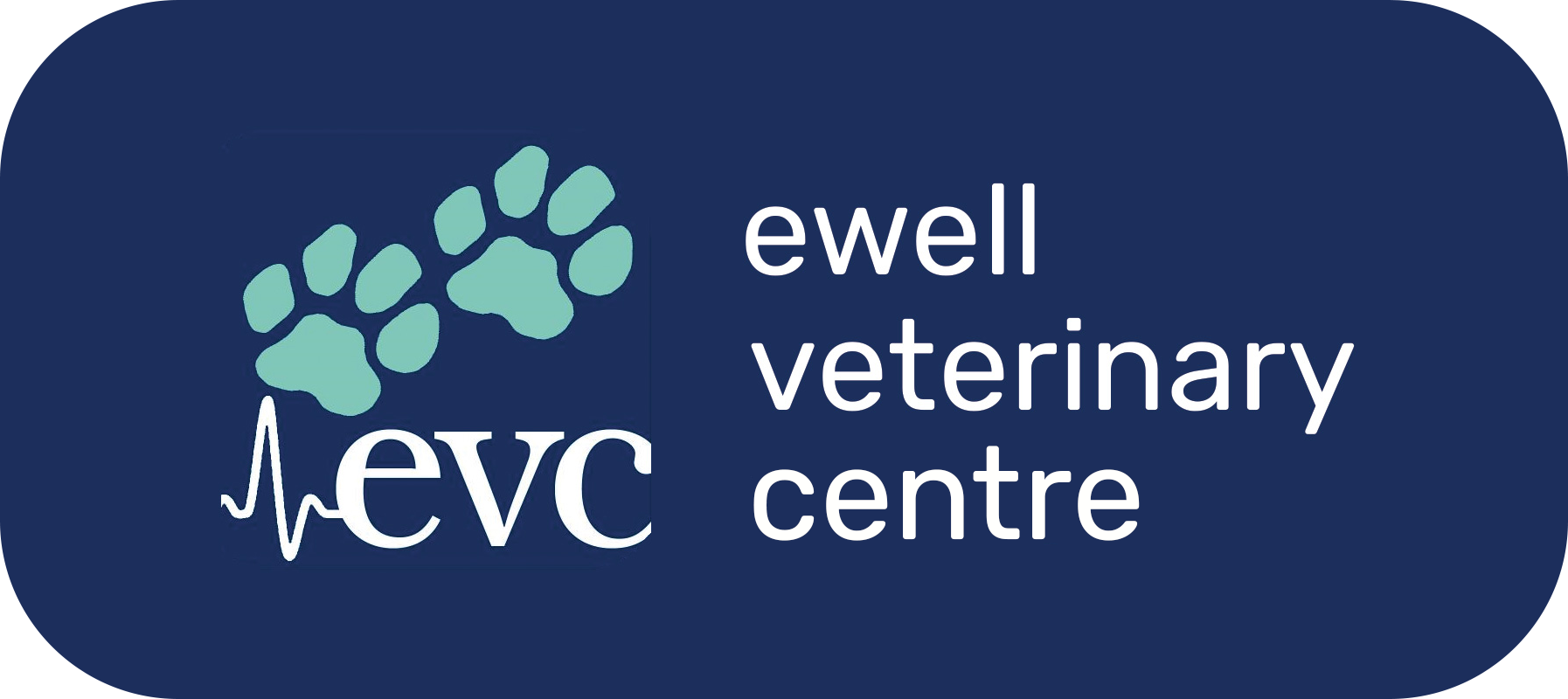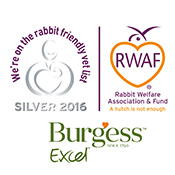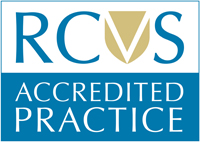Training for dogs who just want to have fun...
Puppy Classes
Puppy Pre School with Rewards Dog Training!
We host puppy pre-school parties at the surgery, on Wednesday evenings at 7.30pm.
These classes are a fun way for your puppy to learn vital social skills and basic training which will set them up for life.
For more information and to book your place contact Sara on 07504 925341 or visit her website at www.rewardsdogtraining.co.uk
NEW OWNERS
Congratulations! If you’re reading this page on the Ewell Vets website, you are already the proud owner or nearly the proud owner of a new puppy!
The good news is that you have a wonderful life ahead of you with a fantastic new family member who will provide you with love and companionship for many years to come.
The bad news? Well, there’s no bad news really but now is the time to think about how you and your new arrival are going to be living together. Do you want a dog that is active and needs a lot of exercise? Or are you looking for a more sedate dog? Have you got a lot of time to groom her, or are you hoping that a quick rub down with a towel will be enough for him? When you are deciding to get a dog, think of all these things before you choose your breed. Going to a reputable breeder is the best way to see your pup’s surroundings and the temperament of the parents. Speak to people at the breed association and find out the good points as well as the bad. It really will make a difference to the dog that you get. And of course, there’s always the rescue option where you can give a pre-loved dog a good home.
There is a minefield of information available about picking a dog for your home and lifestyle. However, assuming you’ve done all the hard work already, this article is intended to give you a little advice about how to care for your pup from the day you bring him or her home and to get you through those early months of dog ownership.
Bringing home your puppy
The day that you get your new puppy is going to be very exciting for you and the rest of the family. However, for your pup it’s going to be the first day away from its mother and litter mates. Everything that he or she has known over the first few weeks of life is going to be left behind. If your pup comes from a registered breeder, you may have visited a few times and started to bond with your pup. Bear in mind that dogs are very social animals and you are now going to become that pup’s family. That first day will be tiring for you all, but approach it with calmness and no real excitement if possible. Ask visitors to wait a day or two before coming to see you and start getting your pup to bond with you before you introduce him or her to anyone new.
Before you even bring your dog home think about what your home is like. Get down on the floor and see your rooms from a pup’s eye view! Are there any nice chewy looking items hanging down? Are there any items that might be easily knocked over? Don’t expect your dog to know what everything is and stuff that hangs or dangles is particularly fun to play with. Introduce your dog to things one at a time, so clear some space and make it less stressful for you all. If you have young children, then encourage them to pick up their stuff so that the pup doesn’t run off with a favourite teddy or school homework!
Do you have a particular place in mind for your dog to sleep? There are no hard or fast rules about where your dog sleeps – it’s all down to personal choice. If you decide that your pup is going to sleep downstairs in a particular area, make sure it’s somewhere quiet and not filled with distractions. Find a small place where you can either put a crate or indoor kennel, a basket and blankets, or make a little "den" for your dog to call their own space. If you do decide to use a crate, you will need to train your pup to see this place as a fun area to chill out in. NEVER shut your pup in a crate as a punishment and always spend time training them in the crate before you even think about shutting the door.
Settling in at home
Okay, so you’ve weathered the first day and the first night. Your little pooch is sleeping where you’ve asked him and he’s happy and relaxed. What next? Start from the very beginning and assume that your pup has come from a totally different planet. If men are from Mars and women from Venus then your pup is from Neptune! They don’t speak the same language as us and they don’t know what things are. Introducing things to your pup is going to be crucial to socialisation and to how your dog approaches things and people in future.
Visitors are going to be the first thing they will meet. From the OAP who can’t move around too much, to the young kids who are going to run around. Your puppy will need to meet all of them and learn about them. Everyone who visits your home is a great opportunity for you to start training with your dog, so make any introductions calm and relaxing. Don’t let your dog become the centre of attention and make sure that everyone who comes over to see her is calm as well. Not all pups like being handled and some find it quite intimidating to have a big hand looming over them. If you have a small breed of puppy this may look really quite frightening. So work with your pup to get them interested in meeting someone while not feeling too threatened. And always give the pup a time out! It’s exhausting being so cute!
Once your pup has had his first set of inoculations, you can take him out but be careful where you go. Don’t head off to the local park where loads of dogs are or the local woodland where deer and other wild life roam free. Your pup is still vulnerable to infections at this age so the best option is to take them out for short walks and carry them around if possible for the first few times. During that time you can start to work on some basic training at home and in the garden.
The next big step is to take your pup along to be registered at the vets. Here at Ewell Vets the team is keen to encourage your pup to think of this place as somewhere good to come. Even if you don’t need to visit the vet, pop in from time to time just to get them used to the surgery and the waiting area. Best of all; join the weekly puppy classes which we hold at the surgery!
Once you’re past the second inoculation stage, you should be able to take your dog out more often. Don’t ask them to do a marathon on the first day and make sure that you don’t over tire your dog. Giant breed pups need particular care with walks as their joints can be damaged if too much exercise is given. Your pup doesn’t need a full hour’s walk all in one go. Little and often is much better for everyone concerned.
Training - the beginning
Training your puppy is as much about training them about life as it is about training them to sit and stay. Everything you do from giving them their meal to toilet training is an opportunity for you to work with your pup and help them to learn skills that will stay with them for the rest of their life. Use plenty of treats at the start and always do short and positive sessions. You may think you’re training but your puppy will think that she’s having fun and playing with you. This is also time for you to spend together, which is the most important thing.
Basic training should include teaching your pup to walk on a lead without pulling, recall when off lead and the one that bothers most new owners; toilet training. The following information is only a guide and all these things are covered at the puppy classes in more detail.
Toilet Training
Your pup’s digestion is very small and very simple. Food and water goes in, something needs to come out! Make sure that you take your pup outside often at regular intervals during the day. Best times are; first thing in the morning, after meals and last thing at night. Some pups need to go out on the hour, every hour initially so judge it on your pup’s requirements.
If you use puppy pads - which can be useful for overnight - bear in mind that you will need to re-train your puppy to go outside as well. There are also toilet boxes available for smaller gardens or spaces if you want your pup to go in a particular place.
Start off by taking your puppy out to the garden and waiting until they eliminate. When they do go praise your pup like they’ve won a medal! Take them out often and, when they are inside watch for the signs of sniffing and looking at the floor that they may need to go.
Every time they eliminate outside in the garden say "good girl" or "good boy" and really make it fun! Eventually they will be desperate to go out and show you what they can do.
Bear in mind that accidents WILL happen. If your puppy does have an accident in the house - DON’T punish him! If you catch Fido in the act, make a sharp noise to interrupt him and take him straight outside to finish. If your pup has done it without you seeing, put him in the garden and clean up without making any fuss. That way you don’t encourage your pup to think this is the best way to get your attention!
After a few weeks your pup should be able to ask to go out and also stay dry overnight. However, if you have any concerns about the length of time it is taking for your pup to become house-trained, check with your vet to make sure there are no health concerns.
Walking on the Lead
This is the most crucial part of your training! Dogs aren’t born with a collar on and working on the lead has to be taught, much like anything else. Make sure that your collar fits properly for your pup. Wider collars are less likely to damage your pup’s neck and all collars should be loose enough to get your fingers inside the collar but not so loose that your pup can escape. If you’re not sure, ask the team at the Surgery for some help.
Start by introducing the collar and lead to them gently in the house. A puppy-line can often be a good way of getting them used to a lead attached to the collar as they are quite light. However, they should only be used when you are there to supervise your pup!
For walking outside, make sure you have a long lead - 1m to 2m in length to give your dog some room to walk beside you without being choked. Small dogs particularly suffer from problems with tall owners and short leads! And never get into a pulling contest! All that will happen is that your dog will learn from an early age that pulling works and they will just pull harder. Finally, be careful how you correct your dog using the collar and the lead. Yanking or pulling on the neck may cause damage to the dog’s vertebrae or even cause your dog to dislike having the lead put on them if they know they will be in some pain or discomfort. A good alternative is to use a harness on your pup to teach them to walk properly. This causes less stress for you and for the pup! Come along to the puppy classes and we’ll be happy to fit your pup up for a new harness.
So, how do you teach your dog to walk on the lead nicely? Keep the lead loose at all times. Walk briskly - many dogs don’t like to dawdle! And practice at home in the garden before you go out of the house. Don’t worry if your pup goes in front of you. They really aren’t trying to take over the world, they just walk quicker! As long as the lead is loose and the pup is not pulling, then let her find the place that is most comfortable for her to walk with you!
Recall
There is never a right or wrong time to let your puppy off the lead. Some trainers think it should be from the very start and others think it should be after training. I believe that it is the owner’s confidence that helps with the recall and therefore, once you have established a good relationship with your pup, you can go on to work on recall. But this will, like everything else, need practice starting at home.
Choose the word you want to use "come" or "here" are the most popular and you can use your pup’s name too in the beginning to get their attention. However, don’t over use their name as they will begin to ignore it! Call your pup to you using "here" in a very light hearted and positive way and then give them a treat. Do this every time they come to you until they are sprinting to get to you. Once they have learnt the word, start giving treats every couple of times they come to you so that they are never sure when they will get the treat. Say "good girl" or "good boy" instead or offer a game when you don’t give a treat. Make yourself the most interesting and exciting person in the world! Once your dog has got this exercise at home, try in the garden. Then try in the park on a longer lead or a long-line. Eventually you will be able to call your dog back to you while they are off lead. However, there is always going to be the odd time when your dog just finds something else too exciting. At that point, don’t keep calling but go and get your dog. Recall is all about practice and confidence!
So there you are. A few tips for the beginning of a wonderful relationship with your new puppy which I hope will be of help to you. All of these tips work equally as well with a dog or puppy coming from a rescue. However, if you want some additional help come along to our puppy classes or contact me for more individual assistance.
I look forward to seeing you at our puppy classes very soon!
Sara Ward


